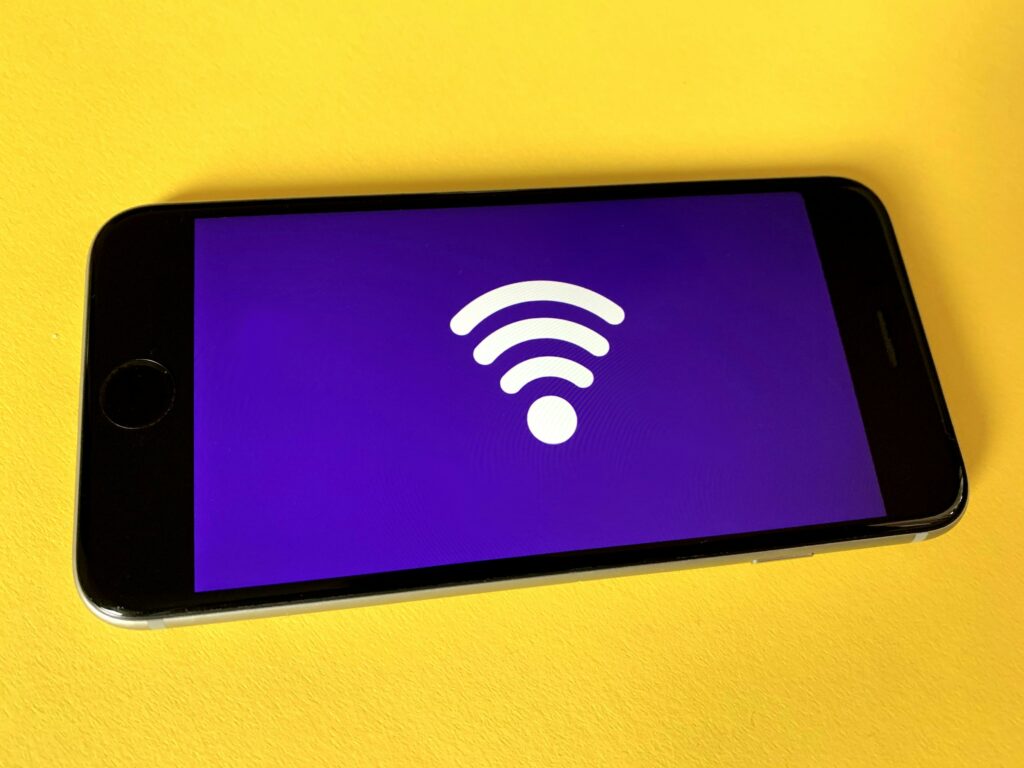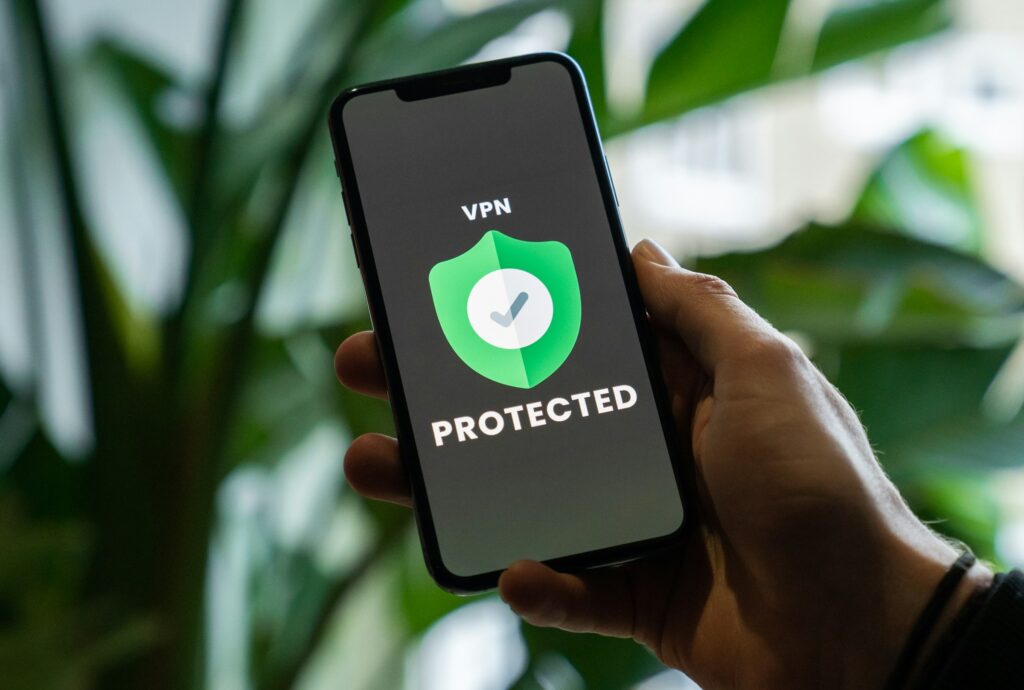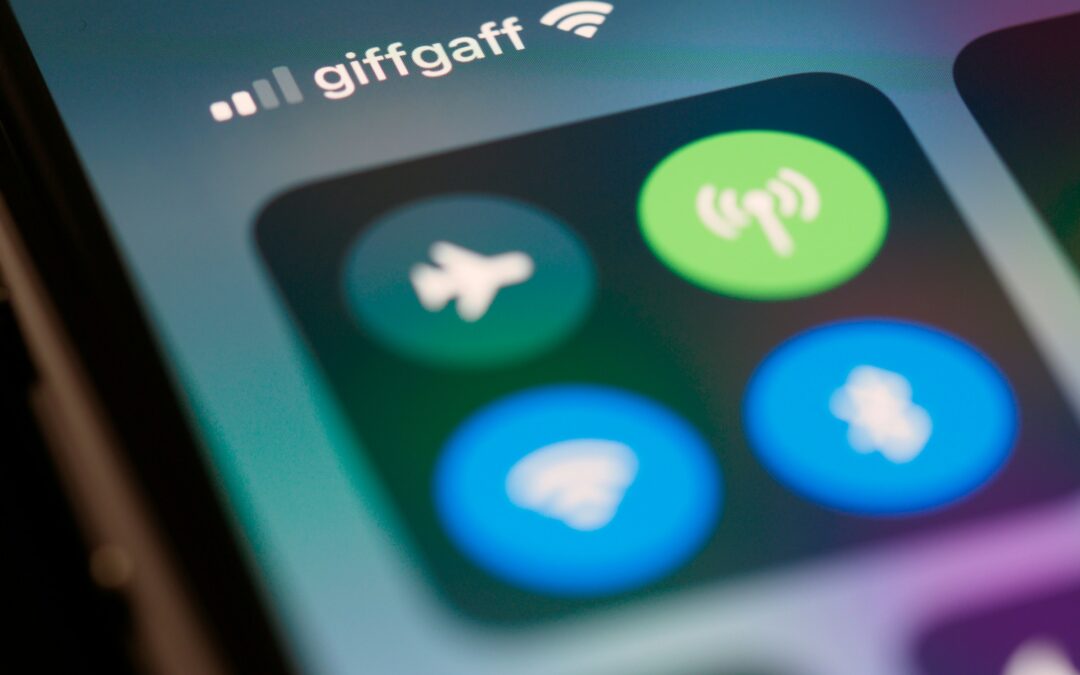Google is serious about the Data protection for Bluetooth tracking. The tech giant has integrated new functions into Android to prevent unwanted Location tracking to prevent this. Since mid-2023, the operating system has been warning of unknown trackers in the vicinity. Users can now respond to these warnings and increase their security.
An important step is the activation of "Find my device" in Germany. This localization service makes it possible to locate devices and tags in Germany. Google is thus setting new standards in the fight against secret Bluetooth tracking and strengthening the protection of Android users' privacy.
Google's new protective measures aim to maintain a balance between functionality and security. Users can now pause location updates for up to 24 hours if unwanted tracking is detected. In addition, the "Find Nearby" function has been introduced to detect suspicious tags.
Important findings
- Android has been warning of unknown trackers since mid-2023
- New functions enable reactions to warnings
- "Find my device" is now available in Germany
- 24-hour pause for tracking updates in the event of suspicious tracking
- "Find Nearby" helps to localize unwanted tags
Introduction to Bluetooth tracking and data protection
Bluetooth tracking is becoming increasingly important. With the spread of tracking devices such as Apple AirTags and Samsung SmartTags, the Bluetooth security into focus. These devices can send location data for up to one year.
What is Bluetooth tracking?
Bluetooth tracking uses wireless technology to locate objects or people. Small transmitters, known as trackers, communicate with smartphones in the vicinity. This method makes it possible to find lost objects.
How does Bluetooth tracking work?
Trackers regularly send out signals. Smartphones in the vicinity receive these and forward the location information. This allows the position of the tracker to be determined. Apple's Find My network and Google's location system for Android use this principle.
Importance of data protection
The Protect privacy is crucial for Bluetooth tracking. Unwanted tracking can become a threat. Google and Apple are working on solutions to anonymous use to ensure the security of your device. Android devices from version 6 warn of unknown trackers. iOS users receive similar protection functions with version 17.5.
Data protection is not a luxury, but a basic right in the digital world.
To protect yourself, we recommend installing current updates. Apps such as AirGuard offer additional security. The collaboration between tech giants promises a uniform protection standard for the future.
The challenges of Bluetooth tracking
Despite its usefulness, Bluetooth tracking poses serious privacy risks. The technology, which was originally developed for convenience, can easily be misused. Cyber security is at the center of the discussion.
Vulnerabilities in the current system
The current Bluetooth system has vulnerabilities that attackers can exploit. Security settings are often inadequate, which Tracking prevention more difficult. A study by Oxford University shows that 88% of Android apps send data to Google, which illustrates the disclosure of personal information.
Risks for users and data protection
Unwanted tracking can have serious consequences. Criminals can create movement profiles and misuse them for burglary or stalking. This poses a serious threat to the protection of privacy.
Examples of unwanted tracking
There are numerous cases of abusive tracking:
- Stalkers who attach Bluetooth trackers to cars
- Thieves who spy on potential victims
- Employers who monitor employees without their knowledge
| App category | Share with trackers | Main tracker |
|---|---|---|
| News apps | 95% | Google, Facebook |
| Kids apps | 87% | Google, Twitter |
| Fitness apps | 78% | Google, Amazon |
These challenges underline the need for improved security measures and greater user awareness of the importance of Data protection in the area of Bluetooth tracking.
Google's new protective measures
Google is improving protection against secret Bluetooth tracking in Android. The company is introducing new features that offer users more control and security. These improvements are part of Google's comprehensive strategy to protect the privacy of Android users.
Overview of the improvements
Google has introduced several important innovations for Bluetooth tracking protection in Android:
- Pausing location updates for up to 24 hours
- "Find Nearby" function for tracking down unknown trackers
- Warnings about undetected trackers in the vicinity
- End-to-end encryption for shared location data
Technical details of the new functions
The new protective measures are based on advanced technical solutions:
| Function | Description |
|---|---|
| Network coverage | Over 1 billion Android devices support the "Find My Device" network |
| Encryption | End-to-end encryption for all shared location data |
| Multiple checks | Location is only shared when several devices have localized it |
| Location restriction | Google can restrict location determination for devices and tracker owners |
These Safety tips and features make Google Bluetooth Tracking Protection for Android a powerful privacy tool. Users can feel safe while enjoying the benefits of Bluetooth tracking.
Past security incidents
Bluetooth tracking has led to significant data breaches in the past. The development of new protective measures is based on this experience. Security settings have been improved in order to Cyber security to increase.
Historical data leaks through Bluetooth tracking
Data leaks through Bluetooth tracking have serious consequences for data protection. A study shows that 80% of the companies surveyed were affected by cyber attacks last year. The German economy suffers damage of over 200 billion euros annually as a result of such attacks.
| Year | Companies affected | Damage in billion euros |
|---|---|---|
| 2021 | 75% | 180 |
| 2022 | 80% | 200 |
| 2023 | 85% | 220 |
Lessons learned from previous incidents
Past experience has led to increased security measures. Google deliberately accepted delays when introducing its "Find my device" network in order to take security concerns into account from the outset.
A worrying trend can be seen in the healthcare sector. From 2022 to 2023, the number of ransomware victims increased by 81 percent. 91 percent of malware-related security breaches in 2024 were related to ransomware.
These figures underline the need for improved Security settings and an increased awareness of Cyber security. Companies must continuously review and adapt their data protection measures to prevent future attacks.
User-friendliness and protection
Google attaches great importance to protecting privacy and ensuring ease of use at the same time. The new security functions for Android devices are a prime example of how protection and user-friendliness can be combined.
Balance between functionality and safety
The challenge is to offer security without restricting use. Google has mastered this by automatically activating the new functions. This allows users to use their devices as usual and at the same time benefit from improved protection against Bluetooth tracking.
Easy handling of the new security features
Operating the security functions is extremely simple. Users do not have to make any complicated settings. The system automatically detects suspicious trackers and informs the user. For a anonymous use no additional steps are required.
- Automatic activation on compatible devices
- No manual settings necessary
- Notifications for suspicious trackers
This user-friendly design also allows less tech-savvy users to benefit from the security improvements. Google is thus demonstrating that Safety tips do not have to be complex to be effective.
How the new protection works
Google has taken a big step towards privacy with its Bluetooth tracking protection for Android. The "Find My Device" network is supported by several billion Android smartphones and trackers.
Technical mechanisms behind the protection
The new protection is based on two main functions:
- Temporarily pause location: Users can block the location of their device for up to 24 hours.
- Search in the vicinity: This function helps to locate unknown trackers in the vicinity.

The Tracking prevention is done by automatically detecting unknown trackers. The system warns the user and offers options for deactivation.
Automatic notifications for users
Android automatically sends warnings when it detects unknown trackers in the vicinity. This allows users to react quickly and protect their privacy.
| Function | Description |
|---|---|
| Pause location | Locks location for up to 24 hours |
| Search nearby | Localizes unknown trackers |
| Automatic warnings | Notified when unknown trackers are detected |
These functions are currently being rolled out for many users to prevent unwanted tracking and increase the security of Android devices.
Effects on the user experience
Google's new security settings for Android are changing the daily use of smartphones. Users have more control over their data and can better protect it from unwanted access. Location tracking be protected.
Changes in the daily use of Android
With the launch of the "Find My Device" network on April 8, 2024, millions of devices will become part of a large location system. However, the Bluetooth location function is not available everywhere. Google has chosen a default setting that only works "with network in high traffic areas".
Users can customize their settings:
- By default: localization only in crowded areas
- Extended: localization in all areas
- Deactivated: No participation in the network
Adjustments to the user interface
The new user interface offers functions for greater security and anonymous use:
| Function | Description |
|---|---|
| Notifications | Warning for unknown Bluetooth trackers |
| Tracker identification | Detection of external trackers with options for action |
| Acoustic localization | "Make the tracker ring" to locate it |
These changes improve the user experience by giving them more control over their own data. Users can react more quickly to potential threats and actively protect their privacy without limiting the functionality of their devices.
What does this mean for app developers?
The new Google's security measures for Android pose new challenges for app developers. They must adapt their applications to the stricter standards for Bluetooth security and data protection.
Safety obligations
Developers are now obliged to increase the cyber security of their apps. They must ensure that their applications do not contain any unwanted tracking functions. This also includes implementing warnings for unknown trackers in the environment.
Adjustments during development
The development of apps now requires additional steps. Developers must integrate the "Find Nearby" function so that users can locate unknown trackers. They must also include options for pausing location updates.
| New requirements | Implementation |
|---|---|
| Warning of unknown trackers | Integration of detection algorithms |
| Pausing location updates | Implementation of control mechanisms |
| Find Nearby function | Integration of Bluetooth scanning |
These changes ensure that apps respect user privacy while maintaining the functionality of Bluetooth services. Developers need to integrate these new standards into their workflows to remain competitive.
Tips for ensuring your own privacy
In the digital world, it is important to protect your privacy. Here you will find practical Safety tips and tools for Tracking prevention.
Practical steps to strengthen security
To protect your privacy, you should regularly check your security settings. Actively use the new Android functions for tracking prevention. The "Find Nearby" function helps to detect unwanted Bluetooth devices in your vicinity.
- Check your data protection settings monthly
- Activate the automatic security updates
- Use the option to temporarily pause location updates
Use of additional apps and tools
In addition to the integrated functions, there are other tools to strengthen your security. A virtual private network (VPN) can provide additional protection for your online activities.
| Tool | Function | Price |
|---|---|---|
| Google One VPN | Encrypted Internet traffic | From € 9.99 / month |
| Tracking blocker | Prevents advertising tracking | Often free of charge |
| Password manager | Secure password management | Free of charge up to 5 € / month |
Please note that using these tools protects your data, but also increases your responsibility. Always read the privacy policies of the apps and services you use carefully.

You can effectively protect your privacy with these security tips and tracking prevention tools. Stay vigilant and regularly adapt your security measures to the changing digital landscape.
The role of user feedback
Google attaches great importance to the opinions of users when developing new security functions for Android. Protection against unwanted Bluetooth tracking is constantly being improved, with feedback from the community playing an important role.
Influence of the community on security updates
Android users actively contribute to improving the security settings. Google uses their feedback to identify vulnerabilities and optimize Bluetooth tracking protection. This is reflected in regular updates that are based directly on user experience.
Proposals implemented
One concrete example of the influence of the community is the introduction of automatic notifications. Users wanted to be informed more quickly about possible tracking attempts. Google responded with a new function that alerts users immediately if an unknown Bluetooth device accompanies them for a longer period of time.
The close cooperation between Google and Android users leads to constant progress in the area of security settings. Every user can contribute to the improvement of Bluetooth tracking protection through active feedback and thus increase the security of all Android devices.
Outlook for future developments
The Bluetooth security is facing exciting changes. Apple and Google are working together on new protective measures against unwanted tracking. This cooperation promises to make the anonymous use of Bluetooth devices more secure.
Possible trends in Bluetooth security
One important trend is the introduction of the new "Detecting Unwanted Location Trackers" security standard. Apple plans to introduce this with iOS 17.5. Google supports it on Android devices from version 6.0. This function is intended to protect users from hidden Bluetooth trackers.
In future, smartphones will be able to detect tracking signals in their surroundings. If a tracker is detected, users will receive an alarm message. Depending on the situation, it may even be possible to deactivate the tracker.
Future collaborations and initiatives
The collaboration between Apple and Google shows a trend towards cross-industry cooperation in cyber security. They have proposed their standard to the Internet Engineering Task Force (IETF) as an industry standard. This could lead to a uniform solution for Bluetooth security.
| The company | Measure | Platform |
|---|---|---|
| Apple | Introduction of new safety standard | iOS 17.5 |
| Support of the standard | Android from version 6.0 | |
| TU Darmstadt | Development of the "AirGuard" app | Cross-platform |
Despite this progress, the challenge of recognizing stalking threats at an early stage remains. Experts call for continue to intensify efforts in the development of security solutions for the anonymous use of Bluetooth devices.
Conclusion and recommendations for action
The improved protection against Bluetooth tracking in Android underlines the growing importance of data protection in our digital world. Google's innovations offer users more control over their privacy and reduce the risk of unwanted tracking.
Importance of active data protection
Active data protection is more important today than ever before. Google's new features allow Android users to better protect their personal data. It is up to each individual to implement these security tips and protect their own privacy.
Encouragement to regularly check security settings
To ensure optimum protection, it is advisable to check the security settings regularly. Only activate necessary interfaces such as Wi-Fi, Bluetooth and NFC. Adjust DNS settings and disable Wi-Fi and Bluetooth tracking if it is not needed. These simple steps can significantly improve your privacy.


Recent Comments